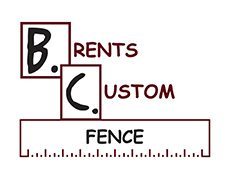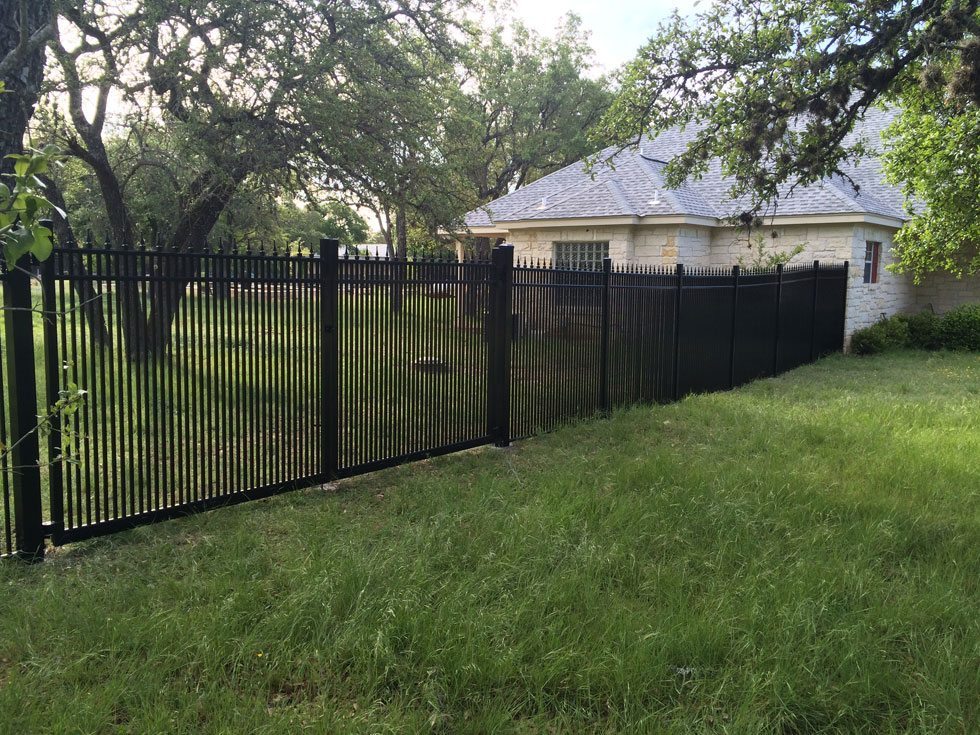Iron is a versatile and durable metal, so most homeowners prefer to use it for the best feel. Its strength makes it one of the best materials for safety fences. Also, it has an attractive look that gives your home or commercial property a luxurious feel.
However, iron has its downsides like other building materials – it is prone to rust. Therefore, if you install an iron fence, you need to follow the proper care tips to keep it in good condition. There are six tips to keep your iron fence in good shape.
#1 Pressure Wash/ Clean your Iron fence
While this may sound surprisingly strange, you can prevent various problems by washing your Iron fence with warm soapy water.
Allow the fence to dry after rinsing it with clean water. It will get rid of dust and debris, a common cause of scratches. Also, rub with a brush or sandpaper until the rust stains are removed. Then, use a soft, damp cloth to wipe off these stains. Avoid abrasive cleaning agents as they scrub the top layer and expose the empty part.
#2 Regular check for the rust
Inspect your iron fence and fence to locate any spots that need repair. Look for rust, loose or unstable feet, cracks, or other signs of damage. Look for paint chips on painted fences. Then, if necessary, take steps to restore the damage you discovered. You can quickly fix most damaged iron fence issues.
#3 Prefer quality repair material
Quality repair material applies to all types of fencing material. The purpose is to record all visual damage to know what you need to repair. Keep an eye out for stains, cracks, dull or dirty patches, and rot around nails and screws.
A visual inspection will prevent problems at least once a year (but hopefully done every few months). If you see unwanted vegetation growing near the Iron fence, it is best to get rid of it! So you need to select a new fence for your property and from a fence contractor.
#4 Check for any damage and repair it immediately
Most homeowners prefer climbing trees and want to transform the fence and give it a green look. However, these trees are generally not safe because they retain moisture, affecting the top layers of your fence and causing structural damage. Therefore, remove any plants that crawl your fence. However, if you like the aesthetics and privacy of plants, keep a wire to support the plants. Thus, the vines will grow on the wire and not directly on the fence. Also, you can use the ideal plant type for iron fences.
#5 Check the landscaping and soil
An iron fence can add multiple benefits to your property, from creating an effective barrier and boundary to increasing the aesthetic appeal of the exterior of your property year after year. However, if you do not take proper steps to maintain and protect it before and after installation, your fence may suffer from landscaping.
If you’re looking for the best way to protect your fence from soil damage, keep it from rotting as much as possible so that your fence can stand without the need for constant repair or replacement. Instead, we recommend choosing a new fence for your property from a fence contractor.
#6 Always prefer a professional fence contractor for the maintenance and installation
It doesn’t matter if your gate is wood, aluminium, composite, or iron. Now all you have to do is keep the engine running smoothly to keep your gate open. If your system includes gates, you will need to oil their moving parts periodically. It shall have minimum hinges on all gates and no latching mechanism.
A mild lubricant like silicone or WD40 will suffice. As with driveway gates, you should regularly inspect and adjust any electrical gate operators and related parts. Check the gate opening mechanism and any tracks or articulated arms. If your iron fence is not working smoothly then you must always prefer a professional fence contractor for maintenance and installation.
Conclusion
In conclusion, iron fences may be comparatively more expensive than other fence materials. However, it is still the preferred choice of many homeowners due to the number of advantages. Overall, iron fences and gates are a good choice if you are looking for something that can give your home a high level of security, elegance, and privacy. If you want to know more about iron fence maintenance and fence installation, contact your Austin fence contractor now to get the best deal at a pocket-friendly price.
FAQs
How often should I inspect my iron fence for damage?
Regular inspections are crucial to maintaining your iron fence. It is recommended to check your fence at least twice a year, ideally in the spring and fall, to identify any signs of damage or wear that may require attention.
What tools are necessary for iron fence maintenance?
Basic tools for iron fence maintenance include a wire brush or sandpaper for cleaning, a rust-inhibiting primer, exterior-grade paint, and a brush or spray gun for applying the paint. For more thorough maintenance, you may also need a pressure washer and a rust remover.
Can I use regular household cleaners on my iron fence?
It is best to avoid household cleaners as they may not be suitable for iron fences. Instead, use a mild detergent mixed with water and a soft brush to clean your fence. This helps avoid damaging the finish or contributing to rust.
What should I do if I find rust on my iron fence?
If you find rust, first remove it using a wire brush or sandpaper. After removing the rust, apply a rust-inhibiting primer to the affected areas, followed by a coat of exterior-grade paint. This will help prevent further rusting and extend the life of your fence.
How can I prevent my iron fence from rusting?
To prevent rust, ensure your iron fence is properly painted with a rust-resistant primer and exterior-grade paint. Regular maintenance, such as cleaning and touch-ups, also helps keep rust at bay. Additionally, ensure that water does not pool around the base of the fence, as moisture can accelerate rusting.

